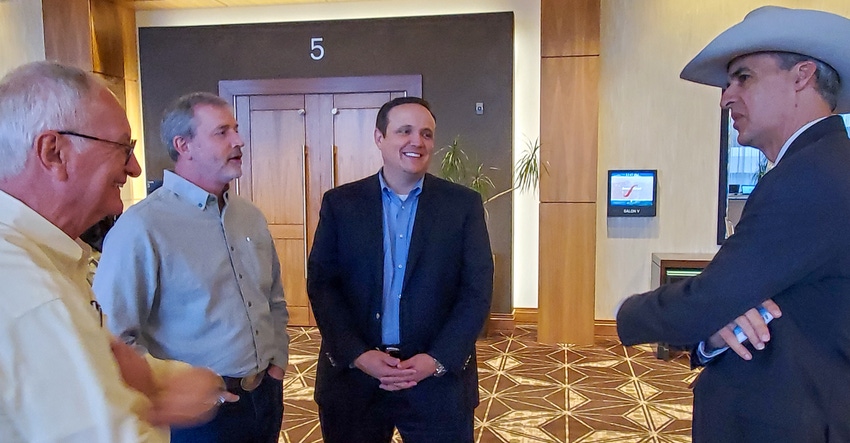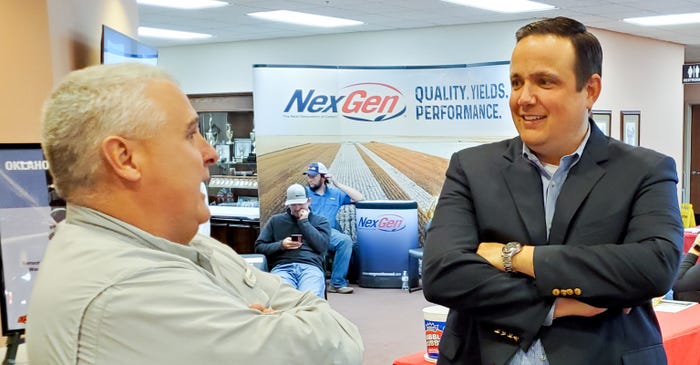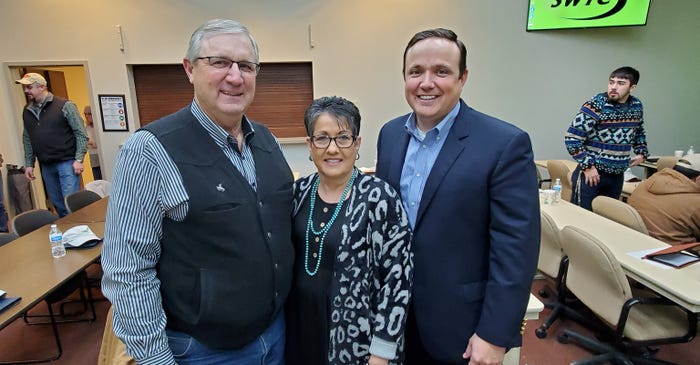
Five months ago, Bart Fischer left Washington D.C. to start a career with the Agricultural and Food Policy Center (AFPC) at Texas A&M University, College Station.
In a way, the Oklahoma native is returning home – home to the Southwest and back to the institution where he earned his Ph.D., while also working at the center.
And though he was in D.C. serving as chief economist on the House Committee on Agriculture, he remained connected to his Southwest farming roots working for Oklahoma chairman Rep. Frank Lucas and Texas chairman Rep. Mike Conaway to usher in the 2014 and 2018 farm bills.
"Throughout my time in D.C., I continued to work with AFPC because they work for the House and Senate agriculture committees doing farm-level analysis," Fischer says. "If Congress is considering making changes, AFPC evaluates the effect those changes will have at the farm level. And that's my passion -- if we're changing federal policy, what effect will it have on farmers and ranchers? "

Fischer co-directs the center with Extension economist and professor Joe Outlaw. "We've got a great crew at the policy center, which is one of the most, if not, the most respected ag policy centers in the country," Fischer says. "It's a tremendous honor for me to be able to lead that effort alongside Dr. Joe Outlaw."
Fischer replaces James Richardson, who retired from Texas A&M in December of 2018. Richardson created the farm simulation model, a tool used since the 1980s to analyze farm bills. While Fischer was a student, Richardson also served on his Ph.D. committee. "It's neat to step into this role, having sat under him as a graduate student," Fischer adds.
What does Fischer bring from Washington D.C. to the center? Beyond having spent a lot of time on the inside of the policymaking process, he brings contacts. "Having worked on Capitol Hill, I still have a tremendous number of contacts there. I think one of the roles I'll play here is having more of a direct relationship with D.C. and the staff members I've worked with over time."
Though Fischer and others work on behalf of American farmers, he says he can't overstate the importance of farmers and ranchers going to D.C. themselves to have their voices heard. "Regardless of what side of the aisle you're on, I encourage people to be engaged in the process. Get involved in commodity groups like the American Farm Bureau Federation, the National Farmers Union, or the National Cotton Council. Fortunately, those groups are telling your story. But no one can tell your story better than you."
With cynicism surrounding government today, Fischer says it bothers him when people paint what goes on in Washington with a broad stroke. "Some of the best people I've encountered are on Capitol Hill. They're there for the right reasons. They're doing incredible work. They're there to serve. They're keeping an ear to the ground about what's happening in the countryside."
For example, Fischer notes the work of Congressmen Conaway and Lucas. "They are incredible leaders who were there at the perfect time. Mr. Lucas, it was passing the 2014 farm bill that took four years. And for Mr. Conaway, dealing with the fallout of cotton being left out of the previous farm bill. They were there at the right time to make both bills happen. They are the gold standard."
Fischer resides in College Station with his wife Karalyn and their three children. "It's nice to be closer to home and closer to the farm."

About the Author(s)
You May Also Like






